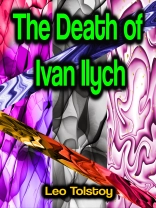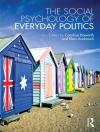The Death of Ivan Ilych Leo Tolstoy – Ivan Ilyich lives a carefree life that is ‘most simple and most ordinary and therefore most terrible’. Like everyone he knows, he spends his life climbing the social ladder. Enduring marriage to a woman whom he often finds too demanding, he works his way up to be a magistrate, thanks to the influence he has over a friend who has just been promoted, focusing more on his work as his family life becomes less tolerable.While hanging curtains for his new home one day, he falls awkwardly and hurts his side. Though he does not think much of it at first, he begins to suffer from a pain in his side. As his discomfort grows, his behavior towards his family becomes more irritable. His wife finally insists that he visit a physician. The physician cannot pinpoint the source of his malady, but soon it becomes clear that his condition is terminal. Confronted with his diagnosis, Ivan attempts every remedy he can to obtain a cure for his worsening situation, until the pain grows so intense that he is forced to cease working and spend the remainder of his days in bed. Here, he is brought face to face with his mortality and realizes that, although he knows of it, he does not truly grasp it.During the long and painful process of dying, Ivan dwells on the idea that he does not deserve his suffering because he has lived rightly. If he had not lived a good life, there could be a reason for his pain; but he has, so pain and death must be arbitrary and senseless. As he begins to hate his family for avoiding the subject of his death, for pretending he is only sick and not dying, he finds his only comfort in his peasant boy servant, Gerasim, the only person in Ivan’s life who does not fear death, and also the only one who, apart from his own son, shows compassion for him. Ivan begins to question whether he has, in fact, lived a good life.In the final days of his life, Ivan makes a clear split between an artificial life, such as his own, which masks the true meaning of life and makes one fear death, and an authentic life, the life of Gerasim. Authentic life is marked by compassion and sympathy, the artificial life by self-interest. Then ‘some force’ strikes Ivan in the chest and side, and he is brought into the presence of a bright light. His hand falls onto his nearby son’s head, and Ivan pities his son. He no longer hates his daughter or wife, but rather feels pity for them, and hopes his death will release them. In so doing, his terror of death leaves him, and as Tolstoy suggests, death itself disappears.
Circa l’autore
Lev Nikolayevich Tolstoy (Russian: ; most appropriately used Liev Tolstoy; commonly Leo Tolstoy in Anglophone countries) was a Russian writer who primarily wrote novels and short stories. Later in life, he also wrote plays and essays. His two most famous works, the novels War and Peace and Anna Karenina, are acknowledged as two of the greatest novels of all time and a pinnacle of realist fiction. Many consider Tolstoy to have been one of the world’s greatest novelists. Tolstoy is equally known for his complicated and paradoxical persona and for his extreme moralistic and ascetic views, which he adopted after a moral crisis and spiritual awakening in the 1870s, after which he also became noted as a moral thinker and social reformer.His literal interpretation of the ethical teachings of Jesus, centering on the Sermon on the Mount, caused him in later life to become a fervent Christian anarchist and anarcho-pacifist. His ideas on nonviolent resistance, expressed in such works as The Kingdom of God Is Within You, were to have a profound impact on such pivotal twentieth-century figures as Mohandas Gandhi and Martin Luther King, Jr.












